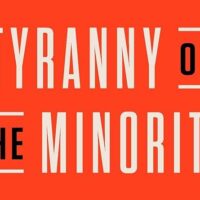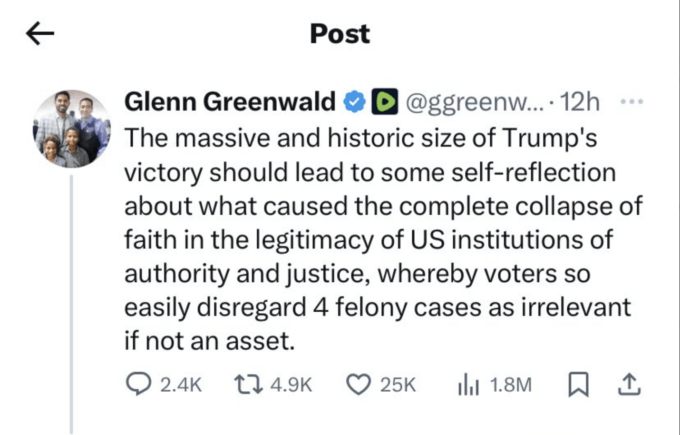Israel claims that the attacks of October 7, 2023, were a surprise. It wants us to believe that a country with one of the world’s most powerful and sophisticated militaries and intelligence agencies had neither expected, nor prepared for these attacks.
This claim is not plausible.
In the past, Hamas had tried to draw attention to the incarceration of 2.3 million Gazans by firing primitive, home-made rockets into Israeli territory. These rockets caused little damage; they did however force some Israelis to shelter in their basements. Always anxious to prevent inconvenience to Israel, the US Congress decided that American tax-payers should pay for Israel’s Iron Dome, a missile defense system—the first of its kind—to intercept rockets and missiles in flight.
On the other hand, the attacks Hamas executed on October 7 were of an entirely different order. These attacks amounted to a small-scale although short-lived invasion of Israel around Gaza. It was an unexpected, even astonishing, performance for a long-oppressed people, some two million of them packed in a tiny strip of land, who have been forced by Israel to live in an open-air prison since 2007.
On the fateful morning of October 7, thousands of Gazan fighters broke through Israel’s high-tech fortifications at some 30 places, attacked some 22 Israeli villages, and engaged in multiple gun battles with Israeli troops and police. Some Gazans flew into Israel on paragliders; a few unmanned midget subs attacked by sea.
Hamas also employed drones to disable Israeli surveillance equipment mounted on towers looking into Gaza. Other drones successfully attacked and destroyed Israel’s reputedly impregnable Merkava tanks. At the same time, Gazans were firing thousands of rockets into Israel, not all of which were intercepted by Israel’s Iron Dome.
One may reasonably assume that these multi-pronged attacks required months, even years of preparation. On November 13, 2023, The Washington Post confirmed the extensive scale of these preparations, and much of which had to be conducted above ground.[1] Some spy satellite, some spy on the ground, inside or outside Gaza, must have detected these activities. The Gazans live in a tiny fishbowl. Indeed, when Israeli jets and drones start bombing Gaza, Israelis have been seen on the surrounding hills with binoculars and picnic baskets reveling in this spectacle in real time.
Is it plausible that one of the world’s most sophisticated militaries, equipped with advanced satellite capabilities, with spies in Gaza and inside Hamas itself, did not get wind of the months of preparations that culminated in the invasion of October 7?
The primitive rockets that Hamas fires into Israel are crafted locally. However, its fighters have been using antitank weapons of foreign vintage—obtained from several different sources—against Israel’s ground operations inside Gaza, weapons that were smuggled into Gaza via tunnels dug under its border with Egypt. Israeli experts might agree that they could not have been air-dropped by Iranian planes.
Israel closely monitors the delivery of weapons from Iran to Hezbollah, and its jets regularly bomb Iranian weapons convoys and weapons storage sites in Syria. Are we to believe that Israel did not monitor the smuggling of antitank weapons into Gaza, even if it could not bomb or destroy them in transit or after they reached Gaza?
Surely, other countries also spy on Gaza. Israel’s major Western allies have a vital interest in Gaza. Some Arab collaborator regimes—Egypt, Jordan, Saudi Arabia and UAE—also have skin in the game. Did these countries report nothing to Israel about October 7?
Indeed, two days after October 7, The Times of Israel reported that the Egyptian spy chief had repeatedly warned Benjamin Netanyahu of a big impending attack from Gaza. Two days later, according to a report in the Guardian, Michael McCaul, the chair of the US House Foreign Affairs Committee, confirmed that three days before the attacks, Egyptian officials had warned Israel of an impending Hamas attack.
Was Israel—always vigilant Israel—caught sleeping at the wheel? It would appear that Israel has been feigning a surprise. This is substantially more plausible than the narrative of an actual surprise, the narrative that Western world accepted without asking any questions.
Israel needed an attack by Gazans. An attack that was big enough to ‘shock’ Israel and the Western world; and any action by Palestinians that killed more than a few Israelis would suffice to cause this shock. In Israeli calculus—demonstrated on many previous occasions—the exchange rate between Israeli and Palestinian lives is one Israeli life, whether civilian or military, for at least a hundred Palestinian lives. Certainly, the Palestinians are all too familiar with this Israeli calculus.
Knowing this—we may reasonably ask— why would Hamas needlessly sacrifice so many of its own fighters if killing more than a few Israelis would have sufficed to provoke Israel’s rage? This alone inclines us to question Israeli claims about the number of Israelis killed by Gazan fighters on October 11. Indeed, the evidence indicates that many Israeli civilians were killed by Israel’s military—under the Hannibal doctrine—to prevent Gazan fighters from taking Israelis hostage.[2]
What is this dilemma that supposedly confronts Israel?
Some history might help in answering this question. In 1937, Ben Gurion, de facto leader of the Yishuv (the Jewish settlers in mandatory Palestine), had tasked the Haganah, the main paramilitary organization of the Jewish settlers, with working out a plan—known as the Avnir Plan—for conquering all of mandatory Palestine when the British begin withdrawing the colonial army.[3]
The Zionists had always eyed all of Palestine without any Palestinians. Over time, after revisions and refinements, the Avnir plan morphed into Plan Dalet. In 1948, this plan served as the blueprint for Israel’s conquest of Palestine and its ethnic cleansing of Palestinians.
By the mid-1940s if not sooner, the Haganah had acquired the military capabilities to defeat the Palestinians as well as repel attacks from neighboring Arab quasi-states. The Zionist leaders waited for the British to end their mandate. On May 14, 1948, when the Britain ended its mandate over Palestine, the Zionist leaders declared the existence of the state of Israel. A day later the leaders of five Arab quasi-states intervened with armies that were poorly-equipped, poorly-trained, and poorly-led. They were no match for the superior Israeli forces.
When separate armistices ended this war during the first months of 1949, Israel had captured 78 percent of Palestine and expelled 80 percent of the Palestinians from these territories. For all their successes, the Zionists had fallen somewhat short of the territorial goal of the Avnir Plan; they had also failed to make Palestine—in the words of Chaim Weizman—as “Jewish as England is English.”[4]
Nevertheless, the Jewish settlers were now firmly in control of their destiny. In a mere three decades, the Jewish settler colony in Palestine had transitioned to a colonial-settler state. Compare this to the white settler colonies in the Americas; they took two to three centuries to end their ties to their colonial progenitors.
In addition, Israel would not be facing any real challenge from its neighbors anytime soon. After their defeat in 1948, the Arab peoples called for unity if not unification; they also wanted their honor restored and Palestine returned to its people. At the time, these aspirations seemed appropriate. But the Arab states were weak, not quite free from colonial control; their economies were dependent on agriculture; and their populations were poor and possessed few skills. They would have to win their sovereignty, reorganize their economies, expand their infrastructure, build industries, and train and equip modern militaries. These efforts would take time, and Israel knew that the Arabs states were not doing too well.
Israel, therefore, turned its attention towards four immediate goals. It began working to double, triple and quadruple its Jewish population, growing the economy, building an army to deter and defeat any combination of Arab armies, and develop nuclear deterrence. By the mid-1960s, if not sooner, Israel had made satisfactory progress towards the first three goals. It was also rapidly developing nuclear deterrence.
The Zionist project was ready to make its next big move. Israel wanted to eliminate the twin deficits of the Zionist project: take possession of all of Palestine and get rid of the Palestinians. Equally, it had to shatter Arab nationalism especially since the leading Arab nationalist states, Egypt and Syria, had vowed to destroy Israel and take back Palestine. At the height of the Cold War, a decisive military victory over these Arab allies of the Soviet Union would bring enormous strategic dividends.
Israel waited for a casus belli. It did not have to wait long. Gamal Abdel Nasser, the Egyptian president was all too eager to oblige. In May 1967 he took several measures that signaled his readiness to go to war. He demanded that the UN withdraw its peacekeeping forces from the Sinai; ordered full mobilization of Egyptian reserves; and began closing the Straits of Tiran to Israeli shipping. In 1957, the USA had warned that it would regard such a move as an act of war. At the same time, the Egyptian leader ramped up his belligerent rhetoric.
All this was just posturing. Egypt was not ready for war; neither was it prepared to defend itself. Israel had been waiting for this day. Acting preemptively, on June 6, 1967, in a mere two hours, Israeli jets destroyed Egypt’s entire air force on the ground. Syria too suffered a similar fate. Without aircover, the armies of Egypt and Syria were at the mercy of the Israeli military. Israel took whatever it wanted.
When this war ended six days later, Israel had captured the West Bank, East Jerusalem, Gaza, the Sinai and the Golan Heights. Israel had met the territorial goal of the Avnir Plan. All of Palestine was now under Israeli control. There was ethnic cleansing too, but not on the scale of 1948. A repeat of 1948 would have been harder at this time.
Had the ‘international’ community pressured Israel to act in accordance with international law and withdraw from the newly conquered territories in Palestine, had it also orchestrated the emergence of some sort of Palestinian state in these territories, these measures might have opened pathways to accommodations between the Israelis and Palestinians, accommodations that might have ended this conflict.
Zionist logic, however, does not engage in such accommodations. Inebriated by their stunning victory, massive territorial gains, the surge in support from Christian Zionists in the USA, jubilation in the Jewish diaspora, elevation by the USA of Israel to the status of a strategic asset, the Jewish state, Israeli society and the Jewish diaspora began to think of the territorial acquisitions as Israel’s new frontier.
The territorial gains offered new opportunities for expanding the Zionist project, for attracting new waves of Jewish settlers wherever they could be found: in Soviet Union if not in the Western countries, in Iran or Ethiopia if not in the Soviet Union, in the Indian states of Mizoram and Manipur if not in Iran or Ethiopia. Israel was hungry for Jewish settlers. It would admit anyone who could claim a connection to the vanished Jewish tribes of Israel.
Some Jewish settlers were aware, a few may have worried, that the June War had adversely altered the demographic balance in the territories under Israel’s control. For several years, until it was dismantled in 1994, they could take comfort from South Africa’s apartheid. South Africa offered one apparently successful example of how a white settler society, even in a postcolonial world, could survive and continue to exploit the labor of dispossessed natives segregated in Bantustans.
Some Israelis may have been aware of the differences between Israel and South Africa—differences in their size and geopolitics—that worked against Israel. Nothing to worry: the Jews are a resourceful people. They have a powerful Jewish diaspora behind them; the South African whites have to contend with a black diaspora in the United States. Moreover, in tough times, apocalyptic times—natural or contrived—Israel could fall back on ethnic cleansing.
And so, Israel has been marching towards its divinely sanctioned goal of establishing exclusive Jewish control over all of Palestine. It marches towards this goal notwithstanding international laws, multiple versions of the Oslo Accords, thousands of Palestinians killed, many thousands incarcerated, tortured and expropriated, hundreds of thousands of olive trees uprooted or cutdown, and more than sixty thousands Palestinian homes demolished. This juggernaut has been moving forward under three different colonial regimes operating in the West Bank, East Jerusalem and Gaza. A fourth apartheid has existed since 1948 in Israel itself, inside its ‘internationally’ recognized borders.
In 2000, the population of Jewish settlers had grown to 190,000 in the West Bank, 172,000 in East Jerusalem, and 6,600 in Gaza. Apart from the Jewish settlers in Gaza, these Jewish settlements were irreversible. They proclaimed the death of the two-state solution.
In time, the world would take notice. Some commentators began warning Israel that it faces a dilemma: it will have to choose between continuing its present apartheid or replace it with a single democratic state for all Jews and Palestinians who live inside its de facto borders.[5] There exists no other option for Israel. Since apartheid is unsustainable, the proponents of this dilemma seem to think that the world will force Israel to become a single democratic state for all its people.
Western support for Israel’s apartheid is unlikely to slacken, but ‘international’ civil society may eventually make it too costly for Israel to maintain its apartheid. Increasingly, civil society in Western countries—at the urging of Palestinians in the West Bank and the diaspora—have begun to support limited campaigns of boycott, divestment and sanctions, aimed at Israel.
Two of the major human rights organizations in the West, Human Rights Watch and Amnesty International, issued reports in 2021 and 2022, declaring that Israel is an apartheid society. Support for Israel among younger populations in the West has also been dwindling, while support for the Palestinian cause has been rising.
These developments raise hopes for a peaceful resolution of the century-old conflict created by an antisemitic West, but Israel is not South Africa. Israel has far greater staying power.
There exist far stronger linkages between Israel and the West—especially the Anglo-Saxon countries and Germany—than could have ever existed between South Africa’s whites and the West. Zionism’s colonial-settler project in the Islamicate space united two adversarial branches of Western civilization: the Christian and Jewish. The Western elites—whether nominally Jewish or Christian—remain deeply invested in the maintenance of Israel as a Jewish state.
South Africa could not play the religious card. Israel holds two religious cards. The Christian Zionists in the USA remain fanatically committed to Israel. Israel and the Jewish diaspora also know how to exploit the Western world’s animus towards Islam and Muslims.
The Jewish Zionists have used both religious cards in the past to good effect. In the past, they had helped to obtain the Balfour Declaration in 1917, to gain votes for the UN partition plan in 1947, and to win unconditional American support at least since 1967.
The thesis that Israel faces only two choices is false.
This is based on naivete, an abundance of optimism, or both. Israel is not circumscribed by two choices: apartheid or a single binational state. There exists a third option for Israel, a massive final round of ethnic cleansing of Palestinians; and this is Israel’s preferred option. Alternatively, Israel may prefer to implement this solution in two or more stages; first Gaza, then the West Bank, and finally the Palestinians within Israel’s 1967 borders.
Ethnic cleansing was and remains integral to the Zionist project; this is the indispensable premise of every exclusionarycolonial settler project. In the exclusionary version of the colonial settler project, the colons and their imperial patrons are determined to drive out/exterminate the natives from the lands they seek to possess.
In order to create a Jewish state in Palestine the Zionists had to create an overwhelming Jewish majority in Palestine.[6] Nazi Germany helped by driving out Jews from Europe—many of whom went to Palestine—but there still existed no realistic prospect anytime soon of creating an overwhelming Jewish majority in Palestine by attracting Jewish settlers. The Zionists did not have a hundred years to achieve overwhelming Jewish demographic dominance in Palestine.
The men who led the Zionist project were nothing if not realists. Therefore, they adopted a two-pronged strategy to create the overwhelming Jewish majority in Palestine. On the one hand, they spared no efforts in channeling fleeing European Jews towards Palestine.[7] At the same time, the Zionist leadership remained focused from the start on erecting the structures of a parallel Jewish state, with the strongest emphasis on building its military capabilities. Only a powerful Jewish military could implement the ethnic cleansing of Palestinians.
Generally, plans for ethnic cleansing were not discussed openly. However, the archives of the Zionist movement, the writings and diaries of its leaders, their correspondence, the minutes of their meetings, and the apartheid policies of the Yishuv make it abundantly clear that ethnic cleansing was constantly on their mind.[8] However, Israel has continued to deny ethnic cleansing even after the fact.
Israel’s first round of ethnic cleansing began in 1947, intensified in 1948, and continued into 1949. Altogether, 720,000 Palestinians, some eighty percent of the Palestinians in the territories occupied by Jewish/Israeli forces, were expelled during this period; this amounted to half the Arab population of mandatory Palestine.[9] A splendid achievement this was: the Yishuv had ethnically cleansed a population nearly as large or larger than their own in less than three years.
Israel engaged in a second round of ethnic cleansing during and after the capture in June 1967 of the West Bank, Gaza and East Jerusalem. As it did in 1948, Israel prohibited the return of any Palestinians who were expelled or forced to flee during this war. Palestinians who were present in the Occupied Territories but were not counted in an Israeli census after the June War were denied the right of residence in Israel. All told, by these and other means, Israel had ethnically cleansed one-fifth of the Palestinians in the occupied territories.
In the decades following the June 1967 War, Israel made life increasingly difficult for the Palestinians in the occupied territories. The aim was to induce them to emigrate, but few Palestinians did. Between 1970 and 2000 the population of the West Bank and Gaza tripled, increasing from one million to three million. Inside its de factor borders, Israel now contained 4.1 million Palestinians and 5 million Jews. This was ringing alarm bells. Something had to be done about this.[10]
Geopolitics at this time did not permit outright ethnic cleansing. In 2005, therefore, Israel executed a novel form of ethnic cleansing in Gaza. Of its four Palestinian populations inside Israel’s de facto borders—East Jerusalem, the West Bank, Gaza and the Palestinians inside the Israel of 1948—the easiest to disappear were the Gazans. In part, this was because of its geography: it was tiny, occupying a narrow strip of land in the extreme southwestern corner of Israel. It also contained one fourth of the Palestinian population inside historic Palestine. On the other hand, Gaza’s Jewish settlers were tiny, a mere 9000 compared to 300,000 in the West Bank in 2000. In addition, providing security to these settlers was costly. Innovative Israel came up with a novel solution to rid itself of the Palestinians in Gaza.
What was this novel solution? In 2005, Israel withdrew Jewish settlers, its officials and military from Gaza, claiming that it had thereby ended its colonial occupation of Gaza. Is the removal of colonial personnel—civilian and administrative—from a colonized territory in and of itself tantamount to ending the colonial occupation of this territory?
When the colonial powers ended their occupation over their colonies starting in the late 1940s, did these colonial powers retain full control over the borders of their former colony, its coastline, its air space and maritime waters; full control over its maritime waters; full control over the movement of people out of and into Gaza; full control over what it exported and imported; full control over its trading partners; full control over the entry of foreign investments; full control over humanitarian assistance from persons outside Gaza; full control over its diplomatic relations with other countries; and full control over its military relations with other countries?
I am not aware of any decolonization—or ending of colonial occupation—in which the colonizing country merely removed its personnel from the colony, but retained full control over all the areas and activities listed in the previous paragraph. However, Israel has continued to exercise all these powers over Gaza since it withdrew its personnel and its settlers from Gaza in 2005. Should we then accept Israel’s claim that it had ended its occupation over Gaza?
The answer is a categorical negative. Instead of decolonizing Gaza, Israel transformed its colony into a prison, an open-air prison, administered within narrow limits by the inmates themselves.[11] This was a novel solution to a problematic colonized population. Instead of granting independence to the Gaza, Israel chose to incarcerate the Gazans inside this territory, while also retaining control over its utilities, exports, imports, and the cross-border movements of people.
Israel had several goals in mind when it removed its settlers and official personnel from Gaza. One objective was to expel Gazans from its demographic space under the pretense of ending the occupation, thus reducing the official Palestinian population within Israel’s de facto borders by one-fourth. Supposedly, this reduce the demographic threat Israel faced from its Palestinian population. At the same time, Israel intended to weaken the Palestinians by virtually cutting off the Gazans from the rest of the Palestinians. Henceforth, Israel would only deal with the compliant Palestinian authority as the legitimate representative of the Palestinians.
Israel also expected the incarceration of Gazans would eliminate the cost of administering and policing them. Should the Gazans seek to disturb Israel’s territorial space, it would deal with them by bombing them, and it could now do so with impunity since there were no Jewish settlers inside Gaza. This would be a bomb-intensive policing of Gazans, using jets, missiles and drones. This manner of policing Gaza would also have the benefit of avoiding any Israeli casualties.
Israel is inseparable from ethnic cleansing. It is the instrument that the Jewish colonial-settler state employs whenever the foolhardy Palestinians resist their colonial project. Indeed, ethnic cleansing is Israel’s birthright. Some Israelis complain bitterly about Arab states because they did not—will not—happily accept Palestinians whom Israel targeted—targets—for ethnic cleansing.
Why don’t the Arab countries—twenty-two of them, many with vast amounts of land—resettle a few million Palestinians on their empty lands? They are so selfish, so insensitive to the plight of their Arab cousins! If only the Arab countries opened their doors to Palestinian refugees, Israel could carry its ethnic cleansing right up to the shores of the Nile and Euphrates. That would be the fulfilment of a more generous land grant by Yahweh to the progeny of Israel.
In his interview to New Left Review in 2004, the Israeli historian, Benny Morris, presents what I believe are the insider’s views on ethnic cleansing among Israel’s leaders.[12] “If the end of the story [of the Zionist project] turns out to be a gloomy one for the Jews,” he says, “it will be because Ben-Gurion did not complete the transfer in 1948. Because he left a large and volatile demographic reserve in the West Bank and Gaza and within Israel itself.” A complete expulsion of all Palestinians, he asserts “would have stabilized the State of Israel for generations.” It does not matter that much of it is based on wishful thinking.
This interview has to be viewed as one more manifestation of the Zionist logic. The Jewish Zionists had fully imbibed the racism of the European variety; and to this racism they added their own hubris as a ‘chosen people.’ As Jewish Zionists, they were fulfilling a higher call; as such, they could brook no opposition from the inferior races, such as the Arabs. This hubris is often on display in the writings of some of the leading Zionists.
What did Benny Morris think of the ethnic cleansing of the Palestinians in 2004? “Not at this moment,” he answers with a deep sense of proper timing. “But I am ready to tell you,” he adds with keen prophetic insight, “that in other circumstances, apocalyptic ones, which are liable to be realized in five or ten years, I can see expulsions. If we find ourselves with atomic weapons around us, or if there is a general Arab attack…acts of expulsion will be entirely reasonable (italics added). They may even be essential.”
Israel waited patiently for the “apocalyptic” circumstances, but they did not materialize. Five, ten, fifteen years passed by but there were no atomic weapons pointed at Tel Aviv at least not from any country in the Middle East. On the contrary, instead of a “general Arab attack,” the leading Arab state, Egypt, unilaterally normalized ties with Israel in 1978, Jordan followed in 1994, and four Arab states—UAE, Morocco, Sudan and Bahrain—exchanged ambassadors with Israel in 2022. Before the attacks of October 7, it appeared that Saudi Arabia might join this normalization parade any day, if only in exchange for promises of security guarantees from the USA. Like Anwar Sadaat at Camp David in 1973, the Arab rulers pursuing normalization with Israel take no stand on the rights of Palestinians.
Palestine had long ceased to be an Arab issue. It was not an issue with the Israelis either. As explained earlier, Gazans had been the beneficiaries of a specially crafted ‘ethnically cleansing’ in 2005. If they decided to get uppity, Israeli pilots and drones knew how to “mow the grass” in Gaza. Under the Oslo Accords of 1993, Israel outsourced the policing of eighteen percent of the West Bank to the Palestinian Authority; and should these hirelings fail to pacify the Palestinians, the Israel military retains the right to intervene. As for East Jerusalem, with expanded borders, Israel was quick to make it part and parcel of Israel in 1980.
Under Israel’s dual apartheid—one inside, another outside its 1967 borders—Israel has faced no serious threats from the Palestinians. Yet Israel never stopped worrying about its troublesome natives. It continues to view the Palestinians as a demographic problem and a security risk, even those who chose to stay with them in 1948. In his 2004 interview to New Left Review, Benny Morris described its first people as “a time bomb,” “an emissary of the enemy,” and “a potential fifth column.” No one can fault Benny for his delicate choice of words.
As an exclusionary colonial-settler state, Israel cannot tolerate Palestinians inside its de facto borders except as a tiny, marginalized minority. Since 1917, the Zionists had done everything they could to bring Jewish settlers into Palestine. Their efforts went into high gear in 1948 when they created a sovereign Jewish state and they became sole arbiters of who could enter Palestine. Israel’s Jewish population grew tenfold between 1948 and 2023, increasing from 717,000 to 7,181,000. Nearly half the world’s Jewish population now lives in Israel.[13]
Yet Israel has not been winning the demographic race. In 2023, the Palestinians outnumbered the Jews in historic Palestine—7.4 million Palestinians versus 7.1 million Jews. This was the result of Israel’s expansionist war in June 1967. But these major additions to its territory, especially the West Bank, were necessary. At its narrowest, Israel before June 1967 was only 9 miles wide. Israel had to conquer and incorporate the West Bank in order to safeguard its security: even if this meant bringing millions of Palestinians under its control. The logic of an exclusivist settler state demands: When in trouble go expansionist.
Israel knew that it could neutralize the demographic and security risks posed by the rapidly growing Palestinian population. Until additional rounds of ethnic cleansing become feasible, the solution lay in various systems of apartheid. Israel knew that it could expand its apartheid because the Western powers are nearly always open to any ‘reasonable’ demands it made on them. No Western proponent of human rights, equality and liberty had raised an eyebrow when Israel incorporated apartheid into the first edition of Israel. After June 1967, it knew that it could impose with impunity new forms of apartheid in the West Bank, Gaza and East Jerusalem.
The Jewish state would have to invent harsher versions of apartheid, but why should this be a problem as long as they worked. The Zionists always know how to make their plans work. If they should need resources beyond their means—to build apartheid walls, surveillance towers, prisons for Palestinians, expanded security apparatus to police the Palestinian ghettos, or conduct international campaigns of misinformation—the USA, Christian Zionists, and the Jewish diaspora stand ready to finance these eminently reasonable demands on their purse.
Israelis know, however, that apartheid is not an enduring solution to its native problem. Opposition to its system of legalized discrimination against a fourth, third or half of its population would eventually grow. Indeed, despite its influence over Western media, despite informal and formal censorship of its critics in the West, opposition to its apartheid has been growing in recent decades. There is also the risk that the Palestinians may take up arms. Israel’s novel ethnic cleansing of Gazans too had not been working according to plan. The West Bank has mostly been quiet since the end of the Second Intifada in 2005, but that could change as more and more American, British or French Jews respond to the siren call of the Promised Land.
However, apart from inveterate romantics, no realist expects that Israel will reform itself under pressure from ‘international’ civil society, that Israel’s apartheid will crumble because some consumers boycott Puma, Soda Stream or Sabra, or because Palestinians may again launch home-made rockets from Gaza. It would be foolish to underestimate the power of the Jewish state and its Western partners. The Jewish settler-state is unlikely to disappear with a whimper.
When circumstances permit, Israel will undertake ethnic cleansing, even massive ethnic cleansing; this is the imperative of its founding logic, the logic of exclusionary settler colonialism.
If these circumstances do not materialize according to Israel’s time table, it has the power to generate them. Afraid of attacking Iran by itself, Israel has for decades been pushing the USA to attack Iran. Should this happen, it will be the signal for Israel to implement its long-delayed ethnic cleansing of Palestinians. To Israel’s dismay, the USA has been reluctant to attack Iran. When it had a chance after 9-11, it chose to destroy Iraq, the weaker target.
However, the imminent normalization of relations with Saudi Arabia—preceded by the normalization of ties with Morocco, UAE, Sudan and Bahrain—was seen by Israel as opening a window for a major round of ethnic cleansing, possibly the first of two or three major rounds. It is likely that Israel had discussed this matter—of ethnic cleansing—with the authoritarian Arab rulers many of whom were now firmly in its corner. It would begin by relocating the 2.3 million Gazans to tent cities in the Sinai. With appropriate promises of aid and investments from Saudi Arabia and UAE, Israel may well have obtained Egypt’s consent for this ethnic cleansing.
All Israel needed was a major Hamas attack to begin executing its ethnic cleansing of Gaza. Hamas had for months, if not years, been preparing for the attacks of October 11. It is not credible, as I have argued before, that Israel had no knowledge of these preparations. Acting upon this knowledge, had Israel aborted these attacks, it would have lost the pretext for its long-delayed plan for the ethnic cleansing of Gaza.[14] Similarly, had Israel responded with alacrity to Hamas attacks and prevented the high casualties, it may not be waging an all-out war against the civilian population of Gaza.[15]
Israel has been conducting its all-out war against the tiny Gaza Strip with one primary objective: complete ethnic cleansing of Gazans. All its actions in Gaza are directed at attaining this objective.
This is to be achieved by reducing the built areas of Gaza to rubble, and much of this has already been completed.[16] Gazans were cut off from supplies of food, fuel, water, electricity and utilities that came from outside Gaza; and generators inside Gaza were bombed.
Nearly all hospitals in Gaza have been bombed, rendering it very difficult to treat tens of thousands of Palestinians injured in Israel’s war, and passing a death sentence on patients whose survival depends on dialysis, other critically ill patients, and premature babies.
Israel told the Gazans to flee Northern Gaza to safe locations in South and Central Gaza in order to escape its bombing. However, its jets bombed the Gazans even as they fled on foot, and within days extended its carpet bombing to South and Central Gaza.
Israel expected the survivors of its carpet bombing across Gaza—now without electricity, telecommunications, fuel and water, and facing growing shortages of food, medicine, hospital beds, and other essentials—to force their way into the Sinai. However, Egypt closed its border with Gaza, afraid that Egyptians would see this as collusion with Israel’s ethnic cleansing of Palestinians.
According to UNRWA (UN Relief and Works Agency), over 1.4 million Gazans have been displaced—many of them multiple times—by Israel’s carpet bombing of Gaza. The UNRWA installations sheltering nearly two-thirds of this displaced population are severely overcrowded. An Israeli human rights group, B’Tselem, estimated that more than half-a-million Gazans would be facing “severe food shortages” by January 7, 2024.[17]
In the face of these food shortages, the destruction of Gaza’s healthcare system, cold winter nights, and the unsanitary conditions in the severely over-crowded UNRWA camps, there can be little doubt that many thousands of Gazans have died of injuries, diseases and malnutrition, and many thousands more may die in the months ahead. Bombs have directly killed more than 23,000 Gazans; many thousands more have died and will die from spikes in mortality rates. The WHO expects the number of deaths from disease to eventually outstrip those killed directly by military action. Carpet bombing is a weapon of mass destruction.
A former Israeli major general and former head of Israel’s National Security Council, Giora Eiland, has offered exactly this solution to Israel’s Palestinian problem. “After all,” he wrote, “severe epidemics in the southern Strip will bring victory closer and reduce fatalities among IDF soldiers,”
In a document from October 17, 2023, Israels’ Intelligence Ministry, examined the option of ‘evacuating’ the Gazans to the Sinai, and claimed that this would “yield positive, long-term strategic outcomes for Israel.” This ministry advised the government to hire major advertising agencies to market ‘displacement’ to Western audiences.[18] Apparently, this advice stems from the conviction that Hasbara—Israel’s global propaganda machine—can whitewash all its crimes.
An Israeli think tank, the Misgav Institute, also made a similar pitch. It argued that the conditions in Gaza offered “a unique and rare opportunity to evacuate the whole Gaza Strip and its coordination with the Egyptian government.”[19] Is it likely that Israel has discussed this plan with governments in friendly Arab countries?
Jonathan Adler, a Hurford Fellow at the Carnegie Endowment for International Peace, writing on December 31, 2023, asserts that “today there is a growing momentum [in Israel] to carry out mass transfer—with American support.” Some Israeli politicians and officials—including a former Brigadier General and a former Israeli ambassador to the United States—“suggest that Palestinians should flee Gaza through the Rafah border crossing with Egypt and seek refuge in the Sinai Peninsula…(italics added)” Is this a suggestion, or a plan?
On October 20, the White House asked Congress for funds to “address potential needs of Gazans fleeing to neighboring countries.” If the White House was preparing to finance the ethnic cleansing of Gazans, it is unlikely that this happened without prior discussions with Israel and Egypt. Did these discussions happen before October 7?
In all likelihood, Israel, the United States and Egypt may have been discussing plans for the ethnic cleansing of Palestinians before, perhaps well before October 7. They may even have reached some agreement—perhaps tentative—to relocate Gazans, temporarily to the Sinai, but eventually they would be scattered across the world.
Did the party of the oppressors think this would be smooth sailing; that it could bomb hospitals, government offices, museums, official archives, ambulances, schools, apartment blocks and mosques with impunity; that ethnic cleansings can forever be hidden from the world; that burying thousands of civilians in the rubble of their homes, and killing thousands of children and babies would not stir the conscience of humanity; that Israel’s war on Gaza would not generate cosmic consequences?
Sometimes, the ‘poor in spirit,’ the ‘meek,’ those’ who mourn,’ those ‘who hunger for righteousness,’ those ‘who are persecuted,’ can maddeningly, impertinently, surprise, even astonish their oppressors.
+++
The USA pretends to have changed course on ethnic cleansing in Gaza for now, but Israel remains committed to this goal as it pursues—as it must pursue—total dominance over the near Islamicate. A lifelong alcoholic does not give up drinking unless he is placed under solitary confinement.
The United States cannot issue Israel a ticket for the carpet bombing of Palestinians, a testimony to its special relationship with Israel. In this special relationship, friends do let friends drive drunk.
Indeed, this is a very special relationship between an old specialist in ethnic cleansing and a novice that entered this business in the late 1940s. There are three reasons why this novice at ethnic cleansing needs help from the old specialist. The novice conducts ethnic cleansing without help from pathogens. It launched into this business with bad timing, when this business had been declared a crime against humanity. Israel acts with the certainty that the old specialist always bails the novice no matter what its crimes.
History will determine how this partnership will work out for these two honorable specialists in ethnic cleansing. Certainly, they think that their partnership will last forever since they are the ‘true’ embodiments of the humane values enshrined in international laws established to punish crimes against humanity.
The Western powers—with Israel at its ethical center—are also the primary beneficiaries of these international laws since they alone—at least until now—have laughingly stood above these laws.
Yet, incredibly, Israel, the country with ironclad impunity—guaranteed by its Western accomplices—now stands before the court of humanity, naked, stripped of its pretensions and pieties, divested of its ‘victimhood’ at the hands of its victims. Thus, whatever the decision of the so-called International Court of Justice, long-suffering humanity, billions of men and women of conscience from all the corners of the world, billions of men and women of all faiths and traditions, have already passed their judgment. No shenanigans emanating from the putrid bowels of power can alter this judgment.
Misled by a small coterie of ambitious Jewish Zionists who first gathered at Basle, tragically and lamentably, the European Jews whose suffering placed them squarely in the camp of oppressed humanity—the ethnically cleansed, enslaved, and colonized peoples of the world—changed sides and joined the camp of their tormentors.
This was a historic mistake. It is time now to rectify this lapse of judgment. If the Jews of the world—with their manifold gifts—join in the task of healing their Palestinians victims, if they stop serving as the instrument of imperialist powers, they may save mankind from the catastrophe that was seeded a hundred years ago by imperial Britain’s maleficent Balfour Declaration of 2017.
There is time yet to avert this catastrophe, but this can only be done by its primary beneficiary until now, Israel, not its primary victims—the Palestinians—and its secondary victims—the near Islamicate in the Middle East. It is cruel and absurd to expect the victims of Zionism to acquiesce and help in their own extinction.
Notes
[1] According to this report in The Washington Post, “Throughout the Gaza Strip — the densely populated, heavily surveilled seaside enclave roughly the size of Philadelphia — Hamas conducted above- and below-ground military exercises. Hamas fighters trained with imported AK-47 rifles, handguns, rocket-propelled grenade launchers, and thermobaric projectiles that generate powerful pressure waves and intense fires with temperatures exceeding 2,700 degrees Fahrenheit.”
[2] See Mearsheimer, Rozovsky, and Winstanley.
[3] Khalidi, Walid, “Plan Dalet: Master Plan for the Conquest of Palestine,” Journal of Palestine Studies 18, 1 (1988): 4–33.
[4] For the Avnir plan, see Walid Khalidi, “Revisiting the UNGA Partition Plan,” Journal of Palestine Studies, Autumn 1997, 27 1: p. 7. For the quote from Chaim Weizmann, see Barnet Litvinoff, ed. The Letters of Papers of Chaim Weizman (Livingston, NJ: Transaction Books, 1983): 267
[5] See Judt, Haaretz, Reliefweb, and Falah.
[6] In June 1895, Theodor Herzl wrote this in his diary. “We shall try to spirit the penniless population [Palestinians] across the border by procuring employment for it in the transit countries, while denying it any employment in our own country. Both the process of expropriation and the removal of the poor must be carried out discreetly and circumspectly.”
[7] Among other things, this meant that the Zionists were nearly absent from any efforts to oppose or change the restrictive immigration policies that began to be imposed by Western countries after World War I and were tightened in the 1930s. In the 1950s, Zionist agents engaged in false flag operations in Iraq—including bombing synagogues—to precipitate the flight Iraqi Jews to Israel.
[8] See Ilan Pappe, The Ethnic Cleansing of Palestine (Oxford, UK: One World Publication, 2006), and Alam, M. Shahid, Israeli Exceptionalism ( Palgrave Macmillan, 2009): chapter 8).
[9] These massive expulsions involved dozens of massacres by Jewish/Israeli militias/military; many women were raped during these massacres; between 400 and 600 villages were destroyed, many razed to the ground; there was looting of Palestinian property; and many Palestinians who remained in Israel were prevented from returning to their homes. See Nur Masalha, Expulsion of the Palestinians (Beirut: The Institute for Palestine Studies, 1992), and Ilan Pappe, The Ethnic Cleansing of Palestine (Oxford: One World Publications, 2007).
[10] Statista, “Population of the region of Israel-Palestine (west of River Jordan) by religious affiliation in select years between 0 and 2000 CE.”
[11] In November 2012, Noam Chomsky, after a visit to Gaza, described Gaza as “the world’s largest open air prison.”
[12] Ari Shavitt, “Benny Morris on Ethnic Cleansing,” New Left Review 26, March/April 2004.
[13] It would be unwise for Israel to drain the Jewish diaspora any further. This diaspora is Israel’s outer perimeter in the Western world.
[14] It is worth noting that Netanyahu declared war on Gaza without waiting for an assessment of Israeli casualties. According to NYT, by early evening of October 7 Israeli officials reported 250 Israeli deaths.
[15] This long delay in Israel’s response to Hamas’ short-lived but multi-pronged invasion of Israel has received little attention in Israel and even less in Western media. This is surprising especially since Israel is one of the most militarized societies in the world.
[16] According to NBC news, “In the first week of the conflict, which began after Hamas’ Oct. 7 terrorist attack killed more than 1,200 Israelis, the IDF dropped 6,000 bombs in Gaza. In 2019, the U.S. dropped 7,400 bombs in Afghanistan over the course of an entire year.”
[17] According to the chief economist for the World Food Program, “There are about 700,000 people in the world currently facing catastrophic hunger…577,000 of them are in Gaza.”
[18] CBC, “Leaked document fuels concern Israel plans to push Palestinians from Gaza into Egypt,” November 1, 2023.
[19] Jon Schwartz, “Hamas Attack Provides “Rare Opportunity” to Cleanse Gaza, Israeli Think Tank Says,” The Intercept, October 25, 2023.
The post Postscripts on Israel: October 7 Surprise? appeared first on CounterPunch.org.
This post was originally published on CounterPunch.org.





 Israeli nuclear whistleblower, Mordechai Vanunu (center), meeting with Ali Kazak (left) and Bishop Riah Abu Assal in Jerusalem 2005. (Photo courtesy of
Israeli nuclear whistleblower, Mordechai Vanunu (center), meeting with Ali Kazak (left) and Bishop Riah Abu Assal in Jerusalem 2005. (Photo courtesy of 



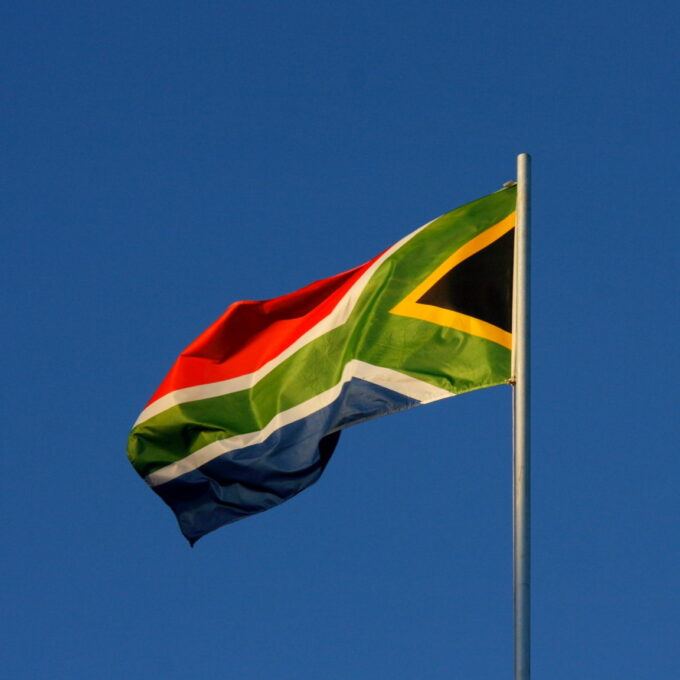




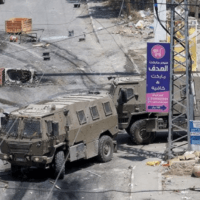


















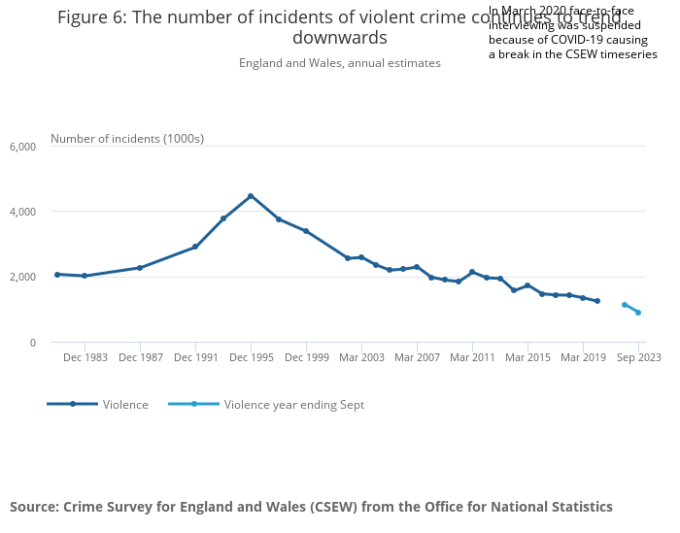



 (@patriottakes)
(@patriottakes) 


